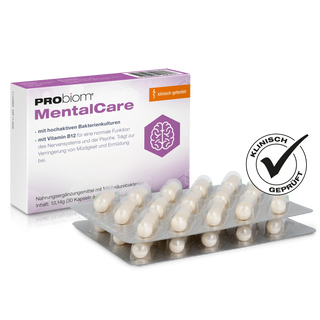Probiotics are often promoted as health-promoting supplements that support the balance of gut flora and offer numerous health benefits. However, while they are beneficial for many people, there are situations in which taking probiotics may not be advisable or even harmful. In this article, we'll highlight the main cases in which probiotics should be taken with caution or not at all.
1. Weakened immune system
People with a weakened immune system, for example, due to chemotherapy, HIV infection, or after an organ transplant, should only take probiotics after consulting a doctor. In rare cases, probiotic bacteria can enter the bloodstream and cause infections.
2. Severe or chronic illnesses
Patients with serious chronic diseases such as Crohn's disease or pancreatitis should be cautious. Some studies suggest that probiotics may negatively impact disease progression in certain cases.
3. SIBO (small intestinal bacterial overgrowth)
SIBO (Small Intestinal Bacterial Overgrowth) is a condition in which bacteria overgrow in the small intestine. Taking probiotics can worsen symptoms such as bloating, diarrhea, and stomach cramps, as additional bacteria can further contribute to the imbalance.
4. After surgery in the gastrointestinal tract
After surgical interventions in the digestive tract, especially after intestinal surgery, altered bacterial colonization may occur. In such cases, the use of probiotics should be discussed with a physician to avoid unwanted side effects.
5. If bloating or stomach discomfort occurs
Some people are sensitive to probiotics and experience increased bloating, stomach pain, or diarrhea. If these symptoms occur, it may be helpful to temporarily stop taking them or switch to a different strain of bacteria. However, such symptoms may also occur as part of an initial flare-up when taking probiotics and subside over time.
6. In case of certain allergies or intolerances
Some probiotics contain traces of dairy, soy, or gluten. People with allergies or intolerances should carefully check the ingredients before taking them to avoid allergic reactions.
7. When taking certain medications at the same time
Probiotics can interact with certain medications, particularly immunosuppressants or antibiotics. While they are often recommended after antibiotic therapy, concomitant use may impair their effectiveness. Individual medical advice is recommended in this case.
Conclusion: When is caution necessary?
Although probiotics offer many health benefits, they are not suitable for everyone. People with weakened immune systems, chronic illnesses, or gastrointestinal problems should discuss taking them with a doctor. If side effects occur, it is worth switching to other strains or a lower dosage. As with any dietary supplement, the individual health situation should always be considered.

















